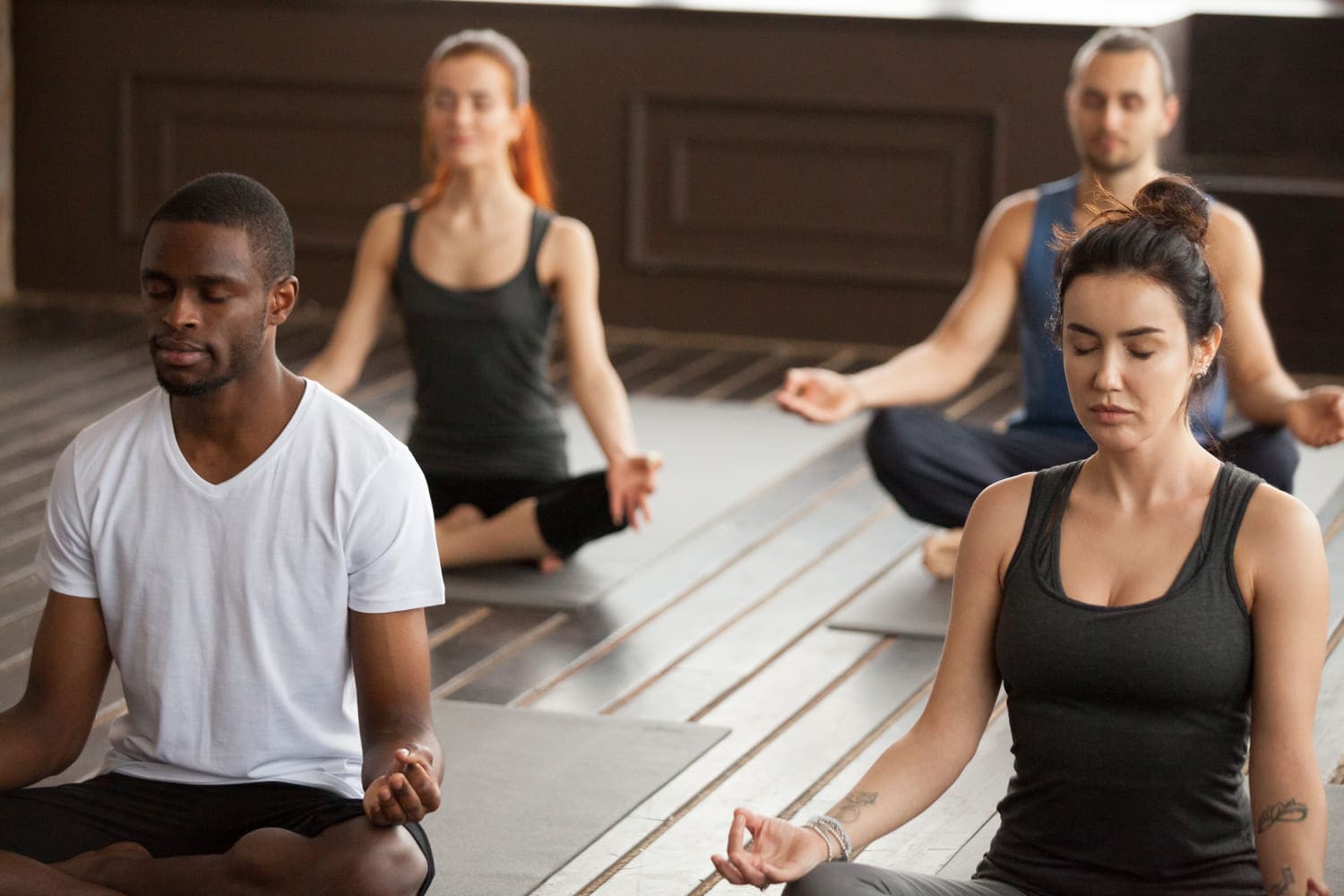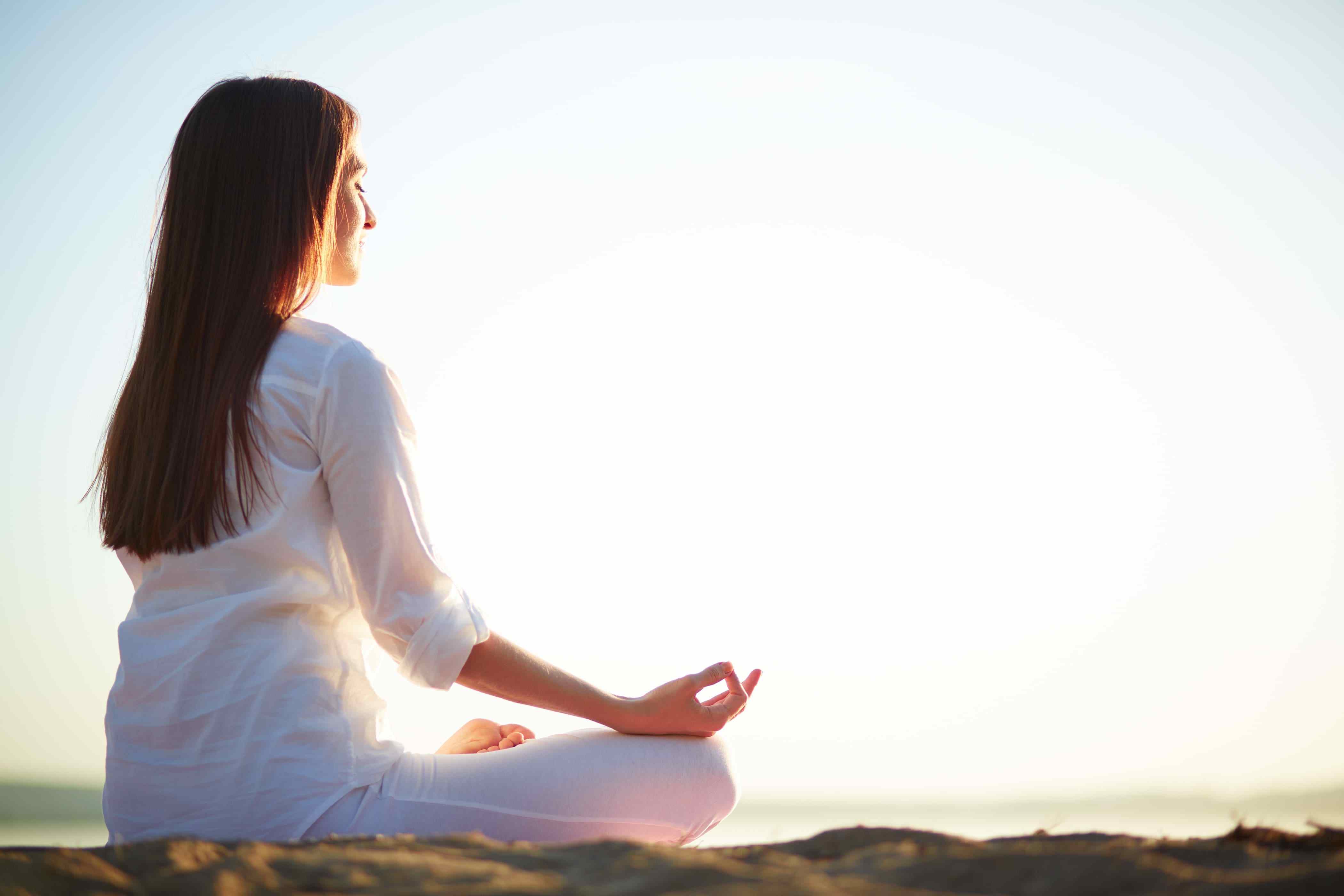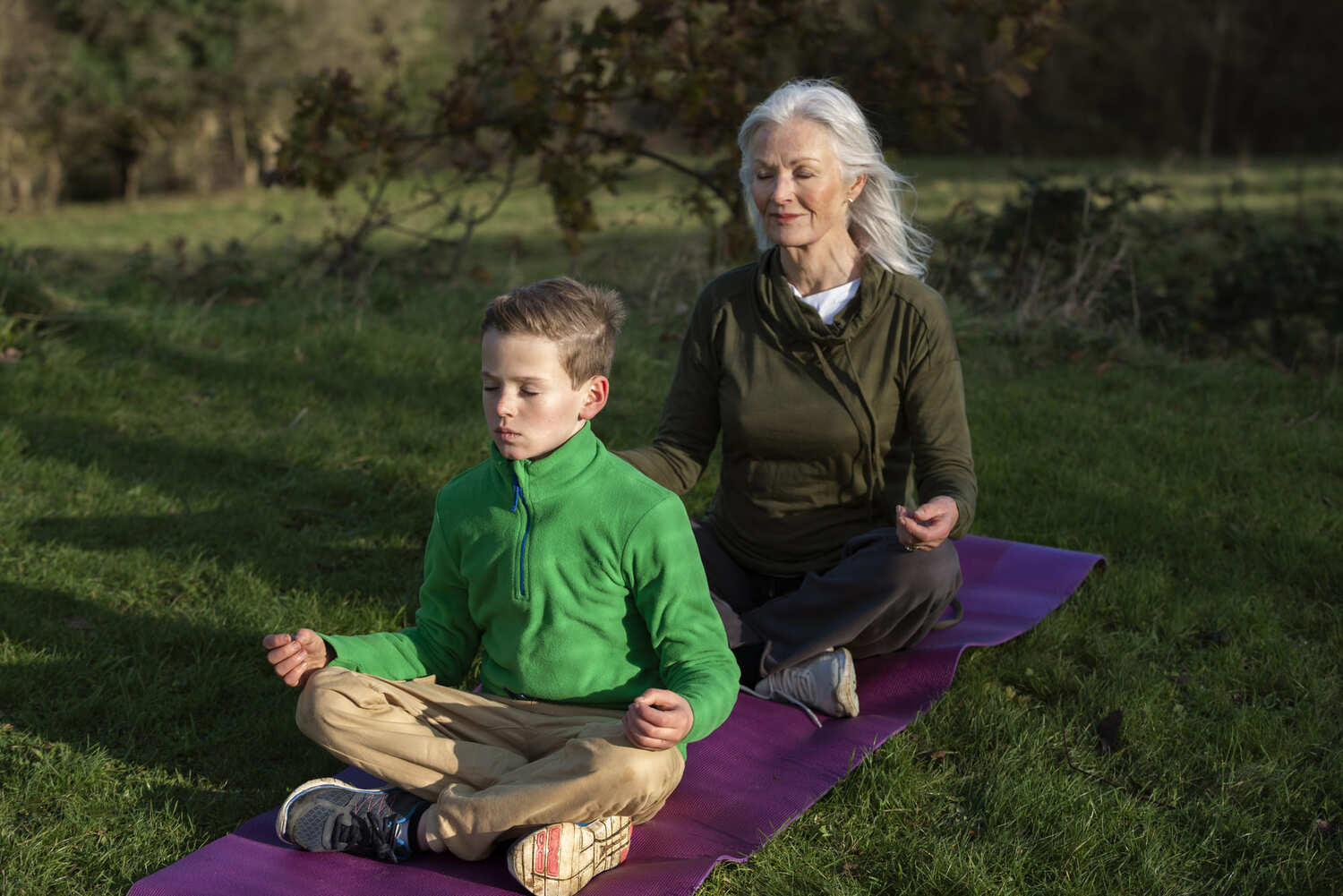What is meditation?
When learning a new skill, it's essential to know its basic definition. So, if you decide to learn to meditate and apply the practice to your daily routine, you should first study what meditation is. Meditation is a practice during which an individual uses a technique – such as mindfulness, or focusing the mind on a particular object, thought, or activity – to train attention and awareness and achieve a mentally clear, emotionally calm, and stable condition. Meditation can also help people make themselves do what they don't like or, vice versa, avoid something. With the help of meditation, you may get rid of addictions or attract money into your life.
According to Dalai Lama, meditation is an individual's natural state of consciousness. He said: "It is a way of training the mind to achieve a state of mental and emotional tranquility." We may reach such a result by using various meditation techniques. So, if you want meditation to work properly, you should choose which method suits you. It doesn't matter which type and practice you choose; they all have the same ultimate goal: to calm the mind. And it can lead you to a happier life: mentally, physically, and emotionally and achieve your goals faster.

|

|

|

|

|

|

|
History of meditation
The word "meditation" means "to ponder," "to contemplate mentally," and "to develop ideas." The monk Hugo II made the first written mention of this term in the XII century, and it was connected to gradual mental contemplation.
The history of meditation is bound with the religious ceremonies in which this practice was used. In prehistoric times, repetitive movements, chants, and phrases were actively used to call the gods. Some scientists suggest that the ability to concentrate one's thoughts and attention, which is an element of many meditative practices, served as the final phase of human biological evolution. At the beginning of the VI-V centuries BC, some first forms of meditation were created in China and India.
The approach to meditation in the West differs from the Eastern approach in many ways. Meditation in the West doesn't involve repeating words, phrases, or actions and doesn't require specific poses. Western Christian meditation appeared at the beginning of the VI century in the practice of reading the Bible among Benedictine monks and was called divine reading. Western Christian meditation was further developed by saints of the Catholic Church who lived in the XVI century, such as Ignatius de Loyola ( Ignacio (Íñigo) López de Loyola) and Teresa of Avila(Teresa de Ávila).
Then, in the middle of the XX century, the English Benedictine John Main combined the method of Christian meditation with the discipline of daily prayer. It, step by step, has led to the modern form of meditation. It is similar to the Western form and stems from India of the 1950s. This form of meditation focuses on stress reduction, relaxation, and self-improvement.
Do you still hesitate whether to try meditation or not? Before you start, you should know the types of meditation and choose the one that suits you best.
Types of meditation
First, you should know that there are many types of meditation. According to specialists, the number varies from 6 to 30. Today we will learn five basic types of meditation (guided, tapping, mindful, full moon, and chakra). Each of them has its peculiarities and goals.

What is guided meditation?
Guided meditation is a process in which one or more participants meditate following the guidance provided by a trained specialist or teacher, either personally or through written text, sound recording, video, or audiovisual materials. The recorded materials may contain music, oral instruction, or their combination.
It is suitable for busy people or for those who don't like to study details. In this case, you just follow the instructions and achieve your goal (that you want to achieve using meditation).
What is tapping meditation?
The essence of tapping meditation is to stimulate specific points on the body — it is not necessary to pierce them with needles if you are a beginner (that's for more experienced practitioners). You can achieve emotional stability, tune in to positive thoughts, relax and calm down with light tapping movements on specific places of your body. Combining actions with internal settings, such as repeating motivating attitudes to yourself, is necessary. Even one word is enough — "love," "success," or "confidence." The word choice for this type of meditation depends on your final goal.
It is suitable for you if you want to become stress-resistant and balanced.
What is mindful meditation?
Mindfulness meditation is a mental training practice that teaches you to slow down racing thoughts, let go of negativity and calm your mind and body. It combines meditation with mindfulness, a mental state that fully concentrates on the "now" so that you can recognize and accept your thoughts, feelings, and sensations without judgment.
It is suitable for you if you're too busy and can't organize your thoughts. Or if something bothers you and doesn't give you a chance to concentrate on what you should.
What is full moon meditation?
Full moon is a practice you should do only during the full moon. Otherwise, it won't work. Meditation on the full moon is probably the strongest one. It allows you to eliminate the unnecessary, accelerate the realization of what you want, and create a new happy reality for yourself. The full moon significantly increases all types of energy, so this type is considered the most successful in meditating with a specific purpose.
It is suitable for you if you want to increase your income, get rid of debt, or have a great goal. Mind that full moon meditation is a vital practice; you shouldn't do it just for relaxation. Use it only when it's necessary.
What is chakra meditation?
If you use chakra meditation, you should concentrate your consciousness on each of the seven chakras, which will help you reveal your inner world. This type of meditation has an immediate effect. There is no need to move away from the world to comprehend your inner self.
It suits you if you want to find harmony with your body and develop intuition. Besides, you may use it to rearrange the movement of the body's energy flow.
And the final type is mantra meditation. Have you heard this word yet? If not, we've prepared an explanation for you.
So, what is the mantra in meditation?
Mantra is one of the most common elements used for meditation and one of the most powerful ones. It is a sacred text, word, or syllable. Some mantras have a literal meaning and can be translated, but most of them, according to tradition, have their value mainly due to the sound quality. Some are short and monosyllabic; others are long and contain many words. You should carefully study the meaning of the mantra you choose for your meditation, as it has strong power. If you choose the wrong one, it may cause the opposite effect.
Why does meditation work?

Meditation allows the human brain to plunge into profound peace and relaxation, gradually becoming a chronic state for the meditating person. Making meditation your habit leads to stress tolerance and the ability to concentrate quickly on what you need. This technique is adequate because it reduces anxiety and prevents unreasonable mood swings. Meditation allows your brain to relax, so it makes it more productive.
How do you meditate?
We've prepared some basic info you may need before you start your first practice.
Meditation for beginners
For beginners, meditation may seem like something strange, little-studied, and even mysterious, but all this is only until you understand what the essence of meditation is. It is in stopping the thought process. Of course, it is the most important goal of meditation, achieved at more advanced levels of practice. Don't even try to start meditating every day if you are a beginner. You will be bored with it and give it up soon. Meditation should be implemented gradually. You may choose certain weekly meditation days (make a schedule). Or, if you believe in the 21-day-habit theory, you should set up a timer of no more than 3 minutes daily for meditation and gradually increase this time. And, of course, you shouldn't choose complex mantras for the first time. You may complicate the mantras you use gradually every month.
How do you meditate properly?
A conscious approach consisting of several stages will help you learn how to meditate correctly:
- make a firm decision;
- choose the necessary type
- choose certain time and place;
- take a comfortable pose;
- master one of the simple but effective techniques.
Mind: it's important to warn your close ones not to disturb you (if you don't live alone) while meditation; otherwise, it will bring no use to you. Besides, don't expect you'll succeed for the first time. To learn to meditate correctly, you need time.
How long do you meditate?
The length of your meditation sessions depends on your preferences, life circumstances, and available time. It is not the duration of practice that is important, but regularity. Meditation specialists recommend starting with a 3-minute session.
How do I start daily meditation?

If you are a beginner and don't know how to start daily meditation and make it a daily routine, study the following information.
If you have read the article carefully, you've already chosen the type of meditation you need. Now you should select the mantra you want to use during your meditation. If it seems complicated, you may use special apps. You may easily find them on the Internet. It's better to meditate at the same time every day. The best period for it is early morning. But it's possible to use meditation after work, in the evening, if your goal is to relax and clear your mind.
Tips for meditating
Here are some tips for you to make your meditation comfortable.
1. Close your eyes.
2. Breathe without trying to control or regulate your breathing.
3. Inhalation and exhalation should be done easily and come naturally.
4. Fix your breathing sensations; focus on internal feelings, "observe" how the abdominal area rises and falls during inhalation and exhalation, how the chest and shoulders move, and "listen" to how the air passes through the sinuses.
5. Don't try to concentrate on what you are thinking about – let thoughts flow freely in your head.
6. As soon as your thoughts begin to "jump," you should concentrate on breathing again.
7. It is better to start meditations in groups (you will learn how to do it correctly and will gain the support of others).
Impact of meditation

Meditation is valuable and necessary for every modern person. If you still hesitate and can't decide whether you need it or not, there are some arguments for using meditation.
What is meditation good for?
The first researcher of the meditation effects was cardiologist Herbert Benson from Harvard Medical School. As a result of his studies, it was revealed that even the most simplified form of meditation has a persistent positive effect on human health. There is an improvement in metabolism and respiratory rate, heart rhythm changes, and brain activity.
Now scientists have proved lots of advantages of meditation:
- It improves brain function. It is scientifically proven that the meditation course promotes the restoration of brain cells.
- It reduces the risk of heart disease.
- It eliminates anxiety.
- It develops mental resistance to stress.
- It improves immunity and strengthens the body's defenses.
Besides, if your brain is relaxed, it will work faster, and you will reach your goals quicker than you have planned.
Potential pitfalls
Everybody faces challenges on the way to learning something new. What can bother you or even spoil your meditation?
- Wrong choice of time and place
- Uncomfortable clothes
- Distracting factors
- Ignoring exercising before it (meditation takes time, and you should do some exercise before it)
- Lack of concentration
- Lack of regular classes
- Inattention to yourself
Now you know all you need to make your meditation process successful. It's time to start!

What do you feel after reading this article?
Response
Superb
Love
Wow
Sad
Laugh
Angry